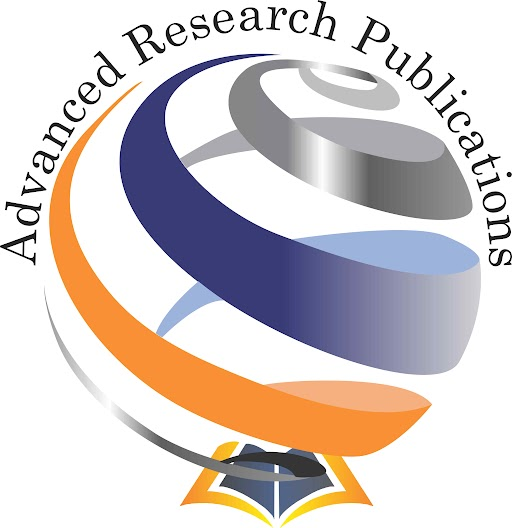Journal of Advanced Research in Telecommunications Emerging Technologies
Bibliographic Information
| Publishing Year: | 2025 |
| Origin: | India |
| Language: | English |
About the journal
The Journal of Advanced Research in Telecommunications Emerging
Technologies (JARTET) is a peer-reviewed international journal dedicated to
advancing the field of telecommunications with a focus on emerging
technologies, systems, and applications. The journal provides a platform for
the latest research in innovative telecommunications concepts, with an emphasis
on new technologies that are shaping the future of communications. The journal
seeks to publish high-quality, original research that contributes to the
understanding, development, and application of emerging trends in
telecommunications.
JARTET covers a broad range of topics related to the next generation of
telecommunications technologies, from theoretical frameworks to practical
implementations. It highlights novel approaches that address critical
challenges in the evolving telecommunications landscape, including 5G/6G
networks, Internet of Things (IoT), artificial intelligence in communications,
and the integration of communication systems with emerging technologies like
quantum computing and edge computing.
Scope:
- Next-Generation
Communication Networks:
- 5G and beyond
(6G) networks: design, deployment, and optimization
- Ultra-low
latency networks for real-time applications
- Software-defined
networking (SDN) and network function virtualization (NFV)
- Network
slicing and resource management in 5G/6G systems
- Energy-efficient
and green telecommunications networks
- Broadband
networks and wireless communication infrastructures
- High-capacity
optical communication systems and technologies
- Wireless
Communication Technologies:
- Advanced
modulation techniques for wireless communication
- Millimeter-wave
and terahertz communications
- MIMO
(Multiple-Input Multiple-Output) systems and massive MIMO
- V2X
(Vehicle-to-Everything) communication for autonomous vehicles
- IoT and
machine-to-machine (M2M) communication networks
- Cognitive
radio and spectrum sharing for efficient wireless communication
- Advanced
antenna systems and beamforming techniques
- Low-power
wide-area network (LPWAN) technologies for IoT
- Artificial
Intelligence and Machine Learning in Telecommunications:
- AI/ML-based
optimization of telecommunications networks
- Predictive
analytics for network traffic management and fault detection
- Autonomous
network management using machine learning techniques
- AI-powered
resource allocation and scheduling in 5G/6G networks
- Deep learning
for signal processing and communications
- Intelligent
edge computing in network performance enhancement
- AI-driven
network security and anomaly detection in telecom networks
- Quantum
Communication and Cryptography:
- Quantum key distribution
(QKD) and quantum cryptography
- Quantum
communication protocols and architectures
- Quantum
networks and quantum-safe encryption technologies
- Integration of
quantum communication with classical networks
- Applications
of quantum computing in telecommunications
- Quantum error
correction techniques in secure communication systems
- Edge Computing
and Fog Computing in Telecommunications:
- Integration of
edge and fog computing with telecommunications networks
- Edge-based
network architectures for low-latency services
- Fog computing
solutions for distributed and decentralized data processing
- Application of
edge and fog computing in IoT and smart city systems
- Efficient
resource allocation in edge and fog computing environments
- Security and
privacy concerns in edge and fog computing for telecom systems
- Telecommunications
Security and Privacy:
- Secure
communication protocols for 5G/6G networks
- Blockchain-based
solutions for telecom security and fraud prevention
- Privacy-preserving
technologies in telecommunications
- Threat
detection and mitigation in telecom networks
- Intrusion
detection systems and cybersecurity for next-gen networks
- Data
protection techniques and encryption for secure communications
- Security
challenges in IoT, V2X, and smart grid systems
- Telecommunication
System Architectures and Protocols:
- Network
architecture for IoT, smart cities, and industrial IoT (IIoT)
- Cross-layer
optimization and protocols for next-generation telecom systems
- Protocols for
low-power, low-latency, and high-throughput communication
- Wireless
sensor networks and their integration into telecom systems
- Design of
robust, scalable, and fault-tolerant telecom systems
- Cross-domain
communication protocols for multi-network integration
- Interoperability
between heterogeneous telecommunications systems
- Internet of
Things (IoT) and Smart Networks:
- IoT network
protocols and communication models
- IoT
applications in smart cities, healthcare, agriculture, and logistics
- Low-power
communication technologies for IoT devices
- Industrial IoT
(IIoT) communication networks and protocols
- Network
integration and interoperability in IoT systems
- Advanced IoT
security solutions and privacy concerns
- Smart grid and
smart home communication systems
- Telecommunications
for Emerging Applications:
- Telecommunications
for autonomous vehicles and transportation systems
- Smart
healthcare systems and telemedicine infrastructure
- Drones and
unmanned aerial vehicles (UAVs) communication systems
- High-performance
computing and big data integration in telecom networks
- Blockchain
applications in telecom networks for decentralization
- Smart farming
and agriculture communication networks
- Telecommunications
in space communication and satellite networks
- Telecom
Industry Trends and Future Directions:
- Evolution of
telecom business models with emerging technologies
- Impact of
5G/6G on global telecommunications industries
- Regulatory and
policy aspects of emerging telecom technologies
- Economic and
societal impacts of telecommunications advancements
- Standardization
and interoperability in next-gen telecom technologies
- Challenges and
opportunities in the deployment of next-generation networks
- Future trends in telecom technologies: from quantum to AI-powered systems

